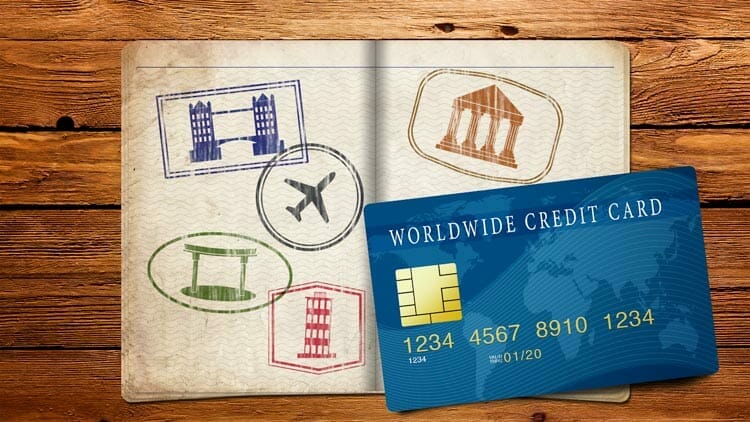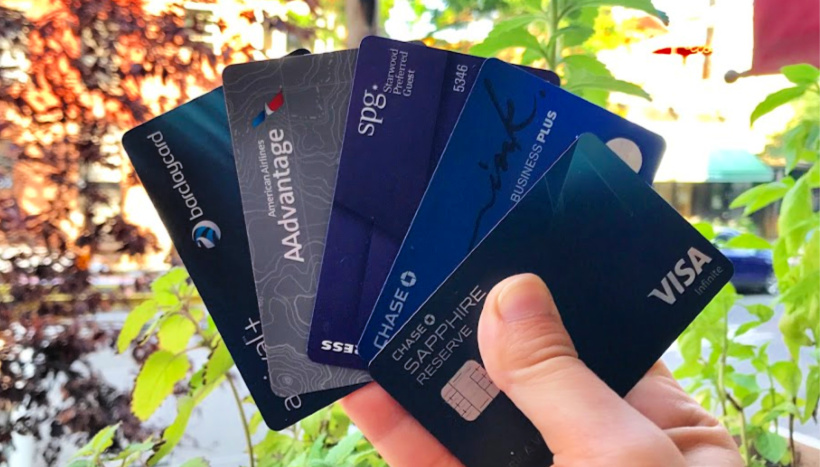You don’t need advanced data and metrics to know that the majority of family vacationers will use credit cards to help fund their trip. International vacations can cost in excess of $10,000 and unless you have been saving coins in your piggy bank or socking away extra cash, you are likely to use a credit card or two to take that dream destination trip.
Not all credit cards are equal on vacation, though. Undoubtedly some of your credit cards will carry higher interest rates, special strings attached for international travel, and also different rewards packages for using your cards internationally. So how to know which cards to use, and how to balance credit limits and budgets? Here are a few pointers.
Bring Widely Accepted Credit Cards
Always best to start with a no-brainer. VISA and MasterCard are currently the most accepted credit providers in the world, but American Express will often get you by. NerdWallet cautions against relying on Discover, however, explaining:
“Discover is the least internationally accepted card network, so you may want to think twice about bringing one overseas. There are exceptions, though. In China, for example, the state-controlled network Union Pay dominates card acceptance, and a reciprocal agreement allows cardholders to use Discover wherever Union Pay is accepted. Keep that in mind if you’re traveling to Shanghai (No. 40) or Beijing (No. 42). And in Japan — Tokyo is No. 2 on the list — Discover has a similar agreement with major card network JCB.”
Sign Up for or Bring Credit Cards with No Foreign Transaction Fees
Some credit cards charge as much as 3 percent on every foreign transaction. While 3% may not seem like much, it surprisingly adds up. That small percentage on $1,000, for example, is $30. If a vacation costs around $10,000 as we mentioned earlier, that is over $300 in transaction fees alone. If all of your current credit cards have foreign transaction fees but you are in good standing with your credit score, you may want to consider applying for a line of credit with a new card a few weeks in advance of your trip.
Not only does ThePointsGuy.com list a whopping nine credit cards that have no foreign transaction fees, but also explains in greater detail. Well worth the read if you are planning to travel outside the United States. Here’s a piece:
“ These types of fees are added to any charge that’s merely processed outside of the United States. They aren’t foreign exchange fees, so you’ll get hit with these charges even when you make foreign purchases in US dollars (which you don’t want to do). In fact, you don’t even have to leave the US to get hit with this fee; if you make an online purchase from a foreign company — such as an airline ticket from an airline without a US website — you could find an additional foreign transaction fee added to your transaction.”

Draft a Credit Card Plan with a Payment Calculator
Nerd out for this one, and do it a few weeks in advance of your trip. If you can, try planning your trip to line up directly after interest has been applied to your most recent balance. Use a Budget Calculator to determine how much credit balance room you have on your credit cards, and take your vacation with enough time to make a payment on all of your credit card expenses before the next interest rate period is calculated. This will save you on total interest, and also make sure you do not get over-extended in a foreign place.
CreditCards.com also dropped this tidbit of knowledge in a recent blog that could prove extremely helpful:
“Also, it would be helpful if at least one of your credit cards has PIN capability. Chip-and-PIN is the EMV chip card standard in Europe, while chip-and-signature is the standard in the U.S.
What this means: Some payment kiosks in Europe, such as for train tickets or parking, accept only chip-and-PIN cards. Few U.S.-issued cards have PIN capabilities – the most common are from Barclays, a British-based bank.”
Saving Money on the Next Vacation
This is where you research your credit card providers and the different types of rewards they offer. Credit providers tend to package their reward offerings based on the lifestyle of the credit card user. This is convenient for you, but it also allows the company to incentivize usage of the card. Everybody wins when you use these travel packages on vacation; you get all the rewards for a trip you probably would have taken anyway, the creditor gets you to use their card for purchases and gets some interest payment from you, and your next vacation will be cheaper because you can cash in on some freebies and amenities you would have otherwise had to pay for when you venture out again.
MyBankTracker.com summarizes this concept in a detailed write-up: “There are a number of credit cards specifically geared toward travelers. These cards offer perks like airline miles, points you can redeem for free nights at hotels, and cashback on travel expenses, in addition to benefits like no fees for the first year, no foreign transaction fees, and increased security in the form of pin and chip technology.”
The Bottom Line
You should still contact your bank and credit card companies and notify them of your plans to travel internationally. Secondly, try to generate savings for vacationing whenever possible, and if you have the ability to use a debit card or check in place of a credit card, it is still the best option. It is very easy to over-extend when using a credit card because no money comes out of your bank account immediately. However, if you can’t pay off the new credit debt by the due date and before the new interest is applied, you may find yourself struggling to recover. If that happens, Golden Financial is here for you. We’ll discuss debt consolidation and debt relief options with you to get you back on your feet.
For additional support, call Golden Financial Services today at (866)-376-9846 or info@goldenfs.org. You can check out our blog here, and do your research on our services here. Let’s talk soon!


